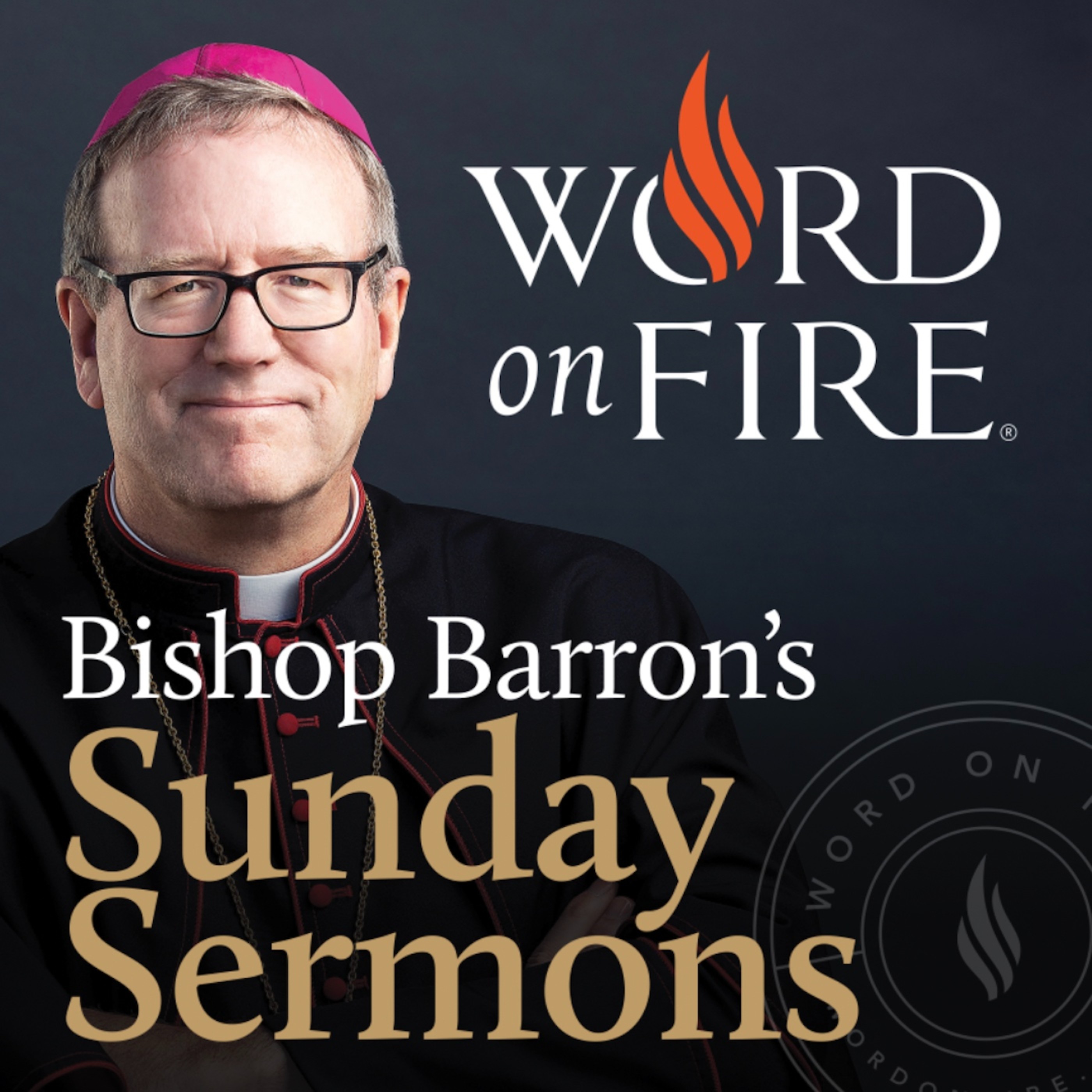

Bishop Barron’s Sunday Sermons - Catholic Preaching and Homilies
Bishop Robert Barron
A weekly homily podcast from Bishop Robert Barron, produced by Word on Fire Catholic Ministries.
Episodes
Mentioned books

May 29, 2011 • 15min
The Spirit of Power and of Truth
The Scriptures for this Sunday offer some glimpse of the Holy Spirit in advance of the great feast of Pentecost. The Holy Spirit is the heavenly grace that enlivens the Church in all aspects of its mission.

May 22, 2011 • 15min
The Co-Inherence of the Mystical Body
No man is an island. One of the messages of the Gospel is that all reality is interconnected. Jesus is the Vine and we are the branches. How organic the Bible is! This view of reality is the exact opposite of the American individualism that currently pervades our culture.

May 15, 2011 • 15min
The Shepherd's Voice
God speaks to us in many ways, especially though the conscience. Since God is a Person, his voice will reach our consciences and lure us to conform our lives to the life of his Son, Jesus Christ. In addition to listening to Christ thought the scriptures, through the teachings of the Church, through the lives of the saints, and through the liturgy, listen to Him speaking to your conscience. He will set you free.

May 8, 2011 • 15min
The Road to Emmaus
Like the two disciples walking towards Emmaus, a symbol of worldly power and security, and away from Jerusalem, the center of sacrifice, we need to be stopped in our tracks. Christ appears to them, but they do not recognize him. They do not recognize him because they are walking the wrong way. The recognition of the pattern of Christ’s life does come until the Eucharistic act which presents the pattern of sacrificial love. Then they immediately go back to Jerusalem, the place of suffering love.

May 1, 2011 • 15min
The Risen Christ in the Midst of His Church
Jesus has come to bring us the divine life. Under his influence we become peaceful, unafraid, evangelizing, and forgiving. Through the Church, saints are made. This is because Christ is at the very center of the Church.

Apr 24, 2011 • 15min
He Is Risen!
Our first reading for this Easter day is Peter's great kerygmatic speech on Pentecost morning. Filled with the Holy Spirit, Peter addresses the Jerusalem crowd, telling them the impossibly good news that Jesus of Nazareth, a man who moved through their ordinary towns and villages, has been raised from the dead. The Easter faith of the Church is not an abstraction, not a vague claim about God's fidelity or our hope for immortality. Rather, it is the startling assertion that God has brought this man Jesus back from the dead. May we bask in the glow of this still surprising revelation.

Apr 10, 2011 • 15min
Lazarus and the Power of Death
Death is not a condition God desires for us . Rather, God wants us to have life. However, death is a reality; but it is not the final word. Christ is the final Word - namely, the life-giving Word. Christ brings Lazarus back to life. He desires to do the same for us.

Apr 3, 2011 • 15min
Coming to Spiritual Vision
The healing of a man blind from birth is an archetypal story of coming to spiritual vision. Sin prevents us from seeing clearly. Christ is the light and he wants us to walk in his light. But we resist. Fortunately, if we stop resisting, Christ will enable us, like Adam in Eden, to walk in easy fellowship with God.

Mar 27, 2011 • 15min
One Who Is Greater Than Our Father Jacob
The story of Christ's encounter with the Samaritan woman is a kind of template by which we can understand our own encounter with the Lord.

Feb 27, 2011 • 15min
Seek Ye First
"Seek first the Kingdom of God and his righteousness, and the rest will be given to you." Make God the center of your life, and you will be spiritually ordered in Christ's image. If you make wealth and security your center, you will be empty. You make the choice: will God be your center?


